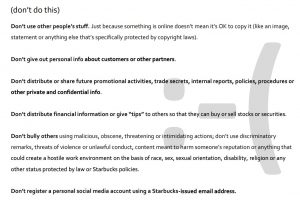— November 17, 2017

Pixabay
Years ago, I had a large office in the Wall Street area with a personal secretary screening my phone calls, opening mail, taking dictation, and managing my calendar. Since then, of course, the business world has changed. The next phase had executives sharing a pool of secretaries using floppy discs working on word processors. That was followed by an administrative assistant supporting at times an entire group.
Whereas years ago the hiring process and the hiring decision were the exclusive domain of the executive, nowadays—since so-called teamwork has become a major part of the work environment—hiring decisions are often shared and thus made by several team members. That process supports the concept that a group decision is better than an individual decision. As a result, the process has become convoluted, protracted, and not necessarily better—in my opinion.
Today’s job market is flooded with lots of very qualified candidates chasing very few openings. The way hiring happens has also changed. Technology has infiltrated the process, and today’s submission of one’s candidacy is purely mechanical. Nobody sees the candidate’s skills and qualifications unless the hiring manager’s keywords match those on the résumé or LinkedIn profile, and only then is the original document viewed. Once that happens, several candidates get selected for the next step in the process.
To save time and money, a short phone or video interview, or screen, is the next hurdle candidates face. It’s usually accomplished by someone junior in the human resources department who in most of the cases does not fully understand the hiring department’s particular needs. If an external recruiter is the intermediary between the candidate and the hiring company, then the recruiter’s financial motivation is playing a significant key role. That’s because recruiters work for the company paying their commissions.
Decision Making
Decision making is a complex process because several parties have a say and a stake in it. For example, sometimes the human resources department representative’s opinion carries significant weight, and other times the rep is merely a paper trail processor. Sometimes a candidate is interviewed by several people in addition to the final decision maker. Those others, too, have a say—because hiring managers want to show their support of their teams by demonstrating their collegiality—but to what extent those other opinions matter is probably variable. And what happens when a hiring manager favors a particular candidate but several others who’d be future peers of the candidate show resistance? In addition, in most cases hiring managers know the thinking and mentality of the person they report into, so what happens if their own opinion is opposed regarding the type of person who should be hired?
A recent large survey was conducted among human resources professionals and hiring managers. The survey clearly found that by far, the number one factor in the hiring decision is the fit factor—meaning, the determination about whether a candidate will fit into the culture of the company. Fully 100 percent of the respondents said so! But what is this culture that’s referred to? Who defines it? Who interprets it?
Some companies use exclusively behavior-based or situation-based interview questions. The tenet here is that past performance is a good indicator or predictor of similar such performance. I wonder if those companies can decisively demonstrate that by practicing this theory, they become able to hire and retain a higher-caliber labor force.
Ultimately, of course, it is people who make the final decision about which candidate to offer the job to. The interview process is certainly not a science but an art. Can that art be learned in order to improve one’s chances of being hired? Well, I’m sure you know the answer to the old riddle that asks, Do you know how to get to Carnegie Hall?
Business & Finance Articles on Business 2 Community
(32)







